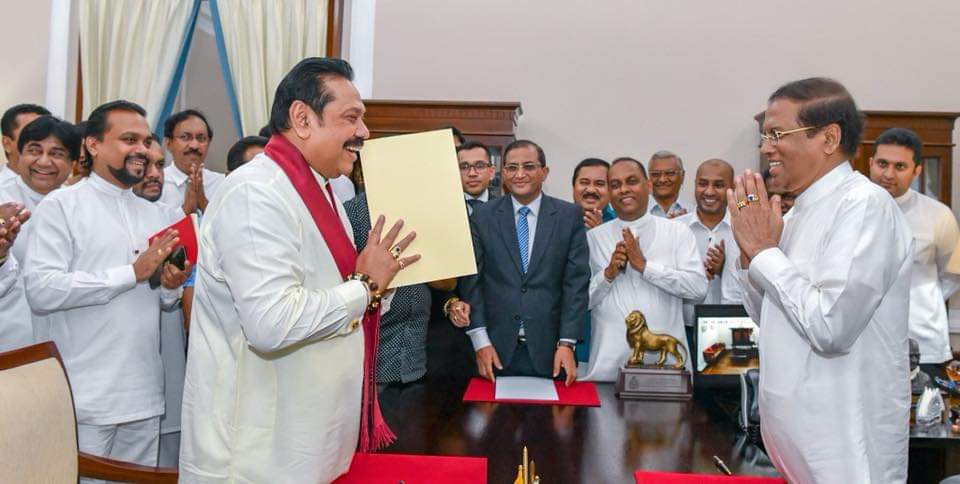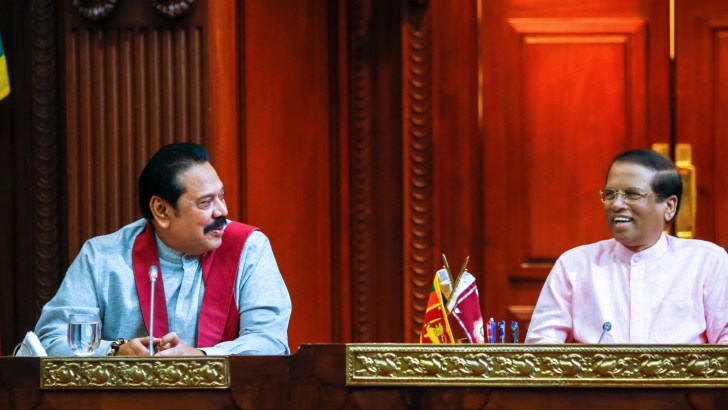 Sri Lanka has erupted into political turmoil this weekend that has left at least one person dead after former president Mahinda Rajapaksa, who stands of accused of overseeing war crimes as tens of thousands of Tamils were massacred during 2009, was sworn in as Sri Lanka’s prime minister on Friday.
Sri Lanka has erupted into political turmoil this weekend that has left at least one person dead after former president Mahinda Rajapaksa, who stands of accused of overseeing war crimes as tens of thousands of Tamils were massacred during 2009, was sworn in as Sri Lanka’s prime minister on Friday.
The ensuing crisis sparked an incident of violence as tensions continued to flare across the capital on Sunday, with at least one person killed when a Sri Lankan minister’s security shot at a protesting crowd. The minister, former cricket captain Arjuna Ranatunga, had to flee wearing Special Task Force uniform and escorted by heavily armed security. He has since been arrested.
Following the shooting on Sunday, the SLFP petroleum union announced it will be on strike until the minister is arrested, with queues already reportedly forming at petrol stations in Colombo.
The appointment of Rajapksa, which was overseen by current president Maithripala Sirisena and the heads of the three branches of the Sri Lankan military, caught UNP leader and Sirisena’s coalition partner Ranil Wickremesinghe by surprise, who has argued back that the move was unconstitutional. Wickremesinghe has claimed that he still remains Sri Lanka’s prime minister and has refused to vacate the office in Temple Trees.
Immediately following the swearing in reports emerged of Rajapaksa loyalists storming Sri Lanka’s oldest press house and two Sri Lankan TV stations being taken off air. Unions loyal to the Mahinda Rajapaksa’s Sri Lanka Podujana Peramuna Party (SLPP) seized editorial control of major publications at the press house on Saturday, with editors of the Sunday Observor. Daily News reporting that they were forced to leave after ceding editorial control.
The ratings agency Moody's on Monday expressed concern over the unfurling turmoil and warned the country may struggle to refinance external debt at an affordable rate early next year.
Meanwhile, a Sri Lankan minister warned that Ranil Wickremesinghe, who still claims to be the legitimate prime minister, was having his life placed under threat by the subsequent removal of his security detail.
International reaction
As the crisis unfolded, the United States said it was “following events” and that it expects the Sri Lankan government to “uphold its Geneva commitments to human rights, reform, accountability, justice, and reconciliation”. It has since called for Sri Lanka’s president “to immediately reconvene parliament”.
Canada said that Sri Lanka "needs to take concrete steps to meet its commitments to its own people--and the international community--with respect to accountability, transitional justice and ending impunity".
Wickremesinghe met with ambassadors from the US, UK, EU, India, Japan, China and Australia.
The EU and Swiss embassy called for all parties to refrain from violence, whilst the UK called for “due political process” to be followed.
China meanwhile met with both Ranil Wickremesinghe and Mahinda Rajapaksa.
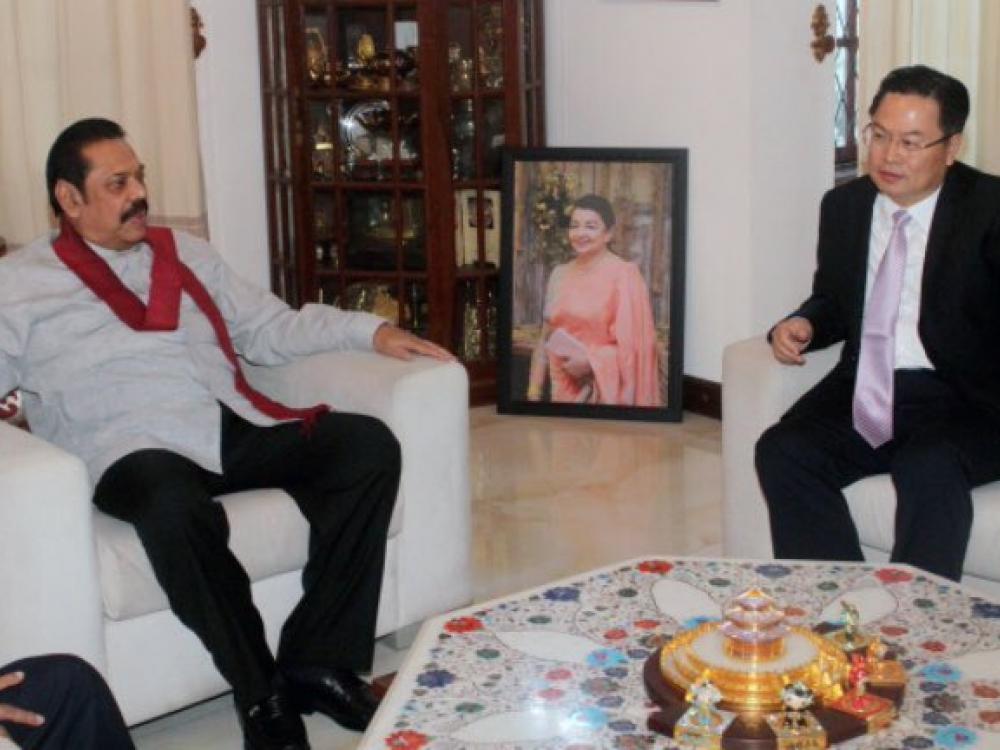 | 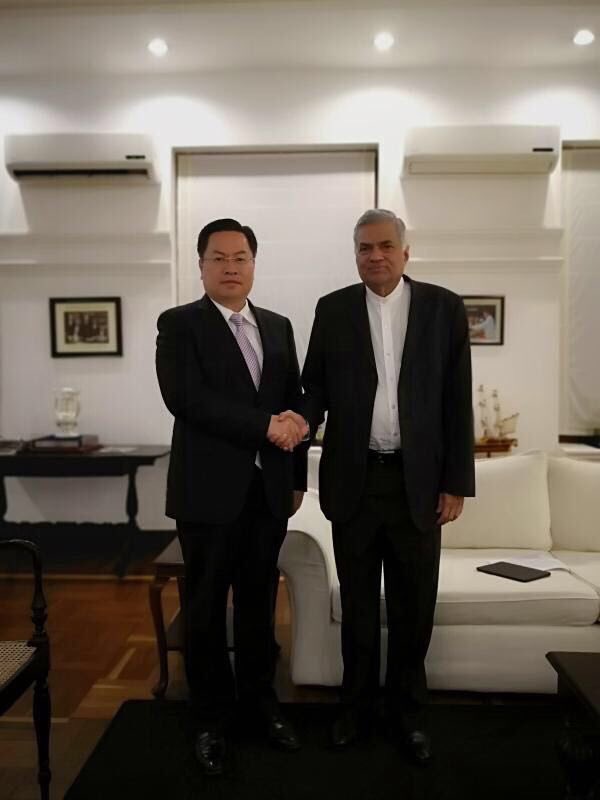 |
After more than 48 hours since the crisis began, India responded to the events by saying “as a democracy and a close friendly neighbour we hope that democratic values and the constitutional process will be respected”.
Tamil Nadu parties and key political figures have unanimously condemned the appointment citing Rajapaksa's role in war crimes and mass atrocities committed against Eelam Tamils in 2009.
Human Rights Watch said the appointment "raises chilling concerns for human rights in Sri Lanka" and added "the current governments failure to bring justice for victims of war crimes under Rajapaksa government reopens the door for past abusers to return to their terrible practices”.
Amnesty International expressed concern, stressing that "human rights must not become a casualty of Sri Lanka’s political crisis".
Several international governments also issued travel warnings for their citizens travelling to Sri Lanka, as the turmoil continued.
A tussle for the majority
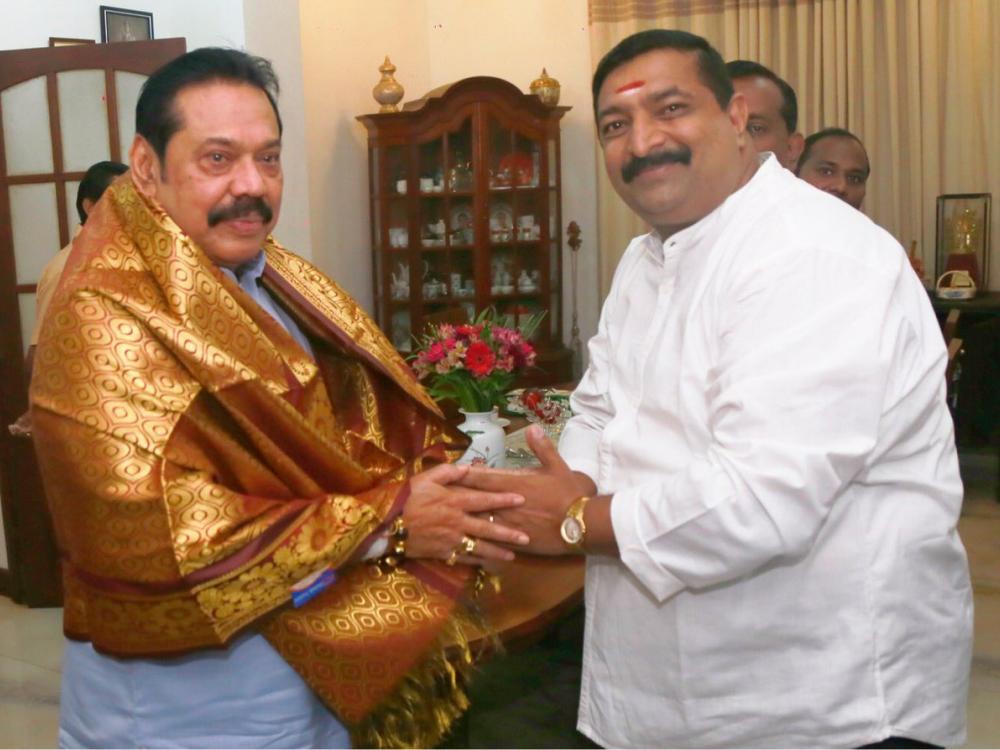
Photograph: @AzzamAmeen
Sirisena went on to suspend parliamentary sittings as both sides tussled to prove they still held a majority in parliament. Already parliamentarians from Wickremesinghe’s UNP began to defect to Rajapaksa, with warnings of more to come.
In the North-East, Tamil paramilitary groups reportedly lit firecrackers in celebration of Rajapaksa’s appointment, whilst the Eelam People’s Democratic Party (EPDP), a pro-government Tamil paramilitary organisation accused of committing a litany of human rights abuses, pledged its support for Rajapaksa.
The Tamil National Alliance met with both Rajapaksa and Wickremesinghe, and reportedly said "the TNA was not interested in protection or promoting individuals but its interest was in finding a solution to the national question".
Rajapaksa consolidating his hold
On Sunday, whilst Rajapaksa flew in a military helicopter to meet Buddhist monks at Kandy, a revered site for Sinhala Buddhists, Wickremesinghe claimed his security detail had been withdrawn. Sri Lanka’s current Minister of Economic Affairs Harsha de Silva said Wickremesinghe’s life was being placed under threat by these actions.

Photographs: Daily News
Rajapaksa meanwhile had already met with heads of the three branches of the Sri Lankan military and with Sri Lanka’s top police official, as he consolidated his hold on the prime minister’s office.
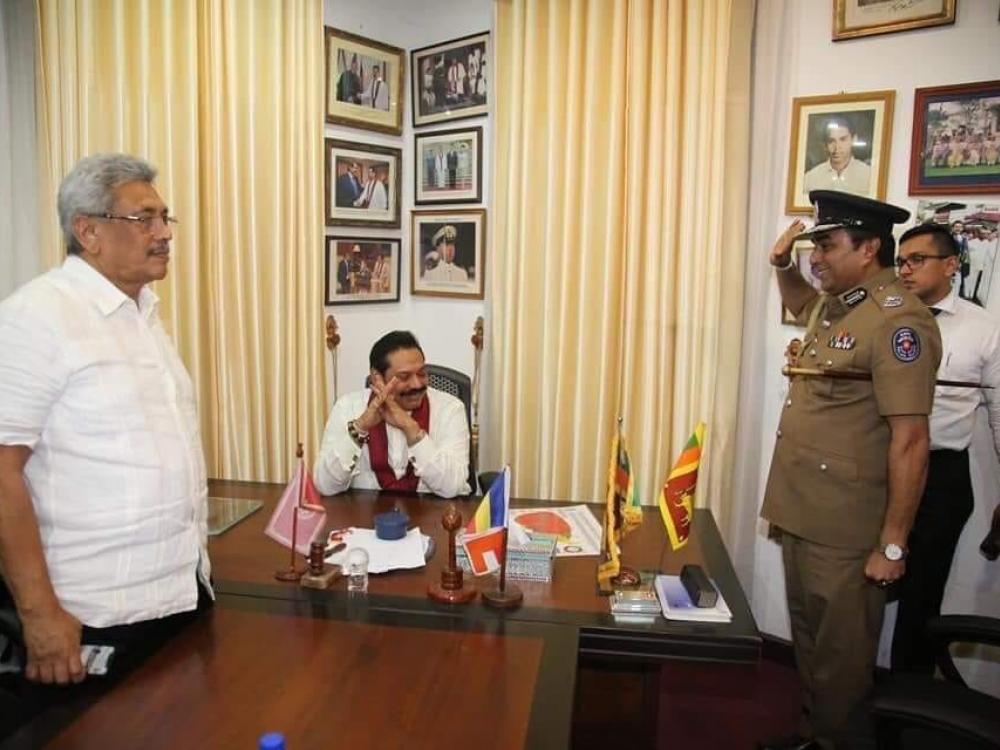
Reports also emerged of Gotabaya Rajapaksa, Sri Lanka’s former defence secretary accused of leading a military offensive that massacred tens of thousands of Tamils having been reinstated to the government’s highest defence office, but this was subsequently denied by his spokesperson.
Tamil human rights activists have expressed concern of a possible increased crackdown by security forces following Rajapaksa’s appointment. Under his government, tens of thousands of Tamil civilians were massacred in a massive military offensive, whilst Tamil political activists were murdered or forcibly disappeared.
Both Rajapaksa and Wickremesinghe are accused of involvement in human rights violations.
Rajapaksa was Sri Lankan president as the government launched a massive military offensive that saw the deaths of tens of thousands of Tamils in 2009. Wickremesinghe is also accused of overseeing human rights abuses, whilst he served as prime minister of Sri Lanka from 7 May 1993 to 19 August 1994 and 9 December 2001 to 6 April 2004.

